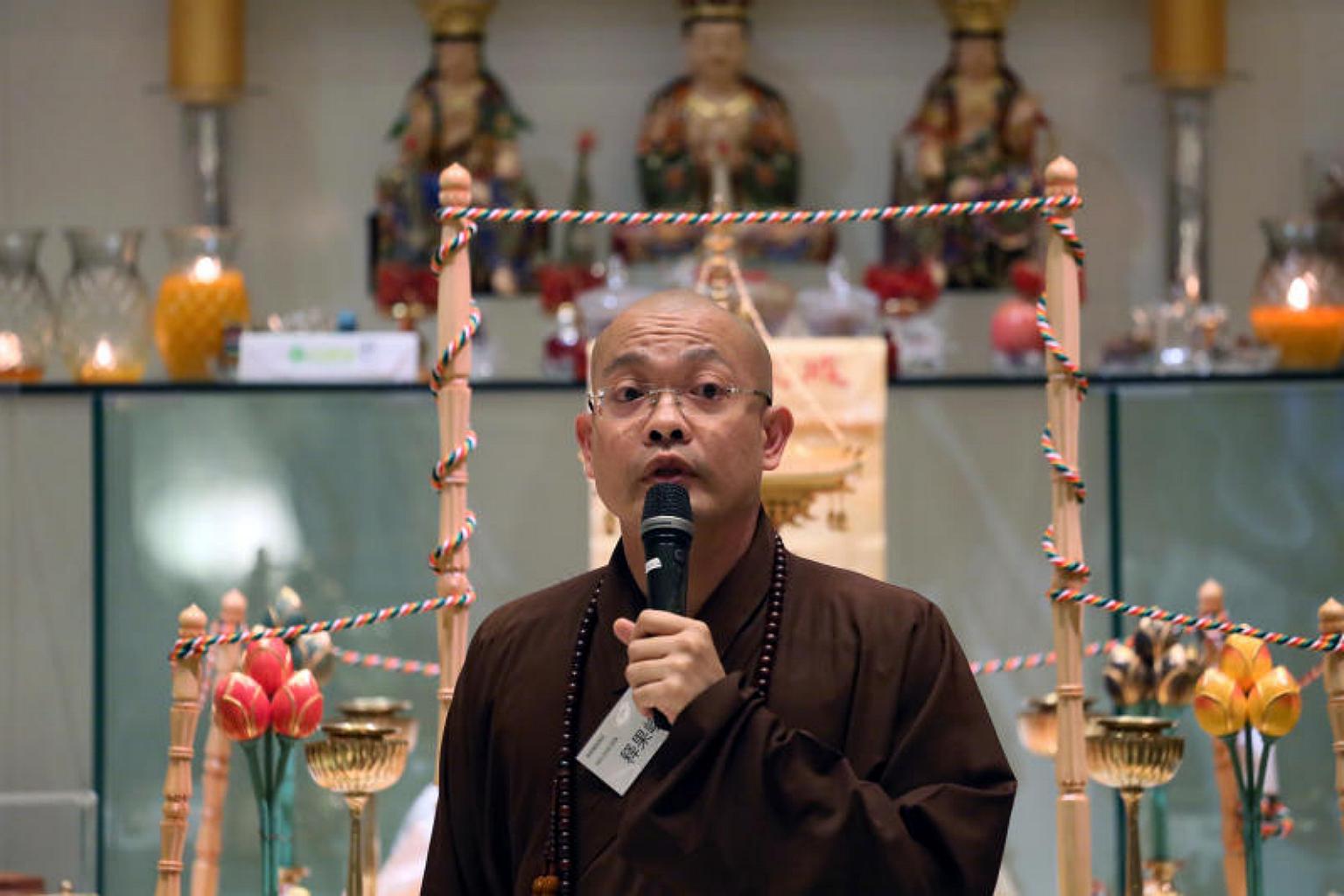Prominent monk sued by devotee seeking return of A$240,000 'study grant'
Sign up now: Get ST's newsletters delivered to your inbox

Venerable Guojun (pictured, in 2016), the former abbot of Mahabodhi Monastery, is being sued over a sum of money given to him by a businessman.
PHOTO: LIANHE ZAOBAO
SINGAPORE - A Buddhist devotee told the High Court on Tuesday (Nov 28) that he gave A$240,000 to a prominent monk in 2010 to pursue a doctoral degree but Venerable Guojun used part of the money to buy property in Australia instead.
Ven Guojun, the former abbot of Mahabodhi Monastery, bought a A$545,000 one-bedroom apartment in Sydney, two months after businessman Lee Boon Teow made full payment of the "study grant". The property was sold in June (2017) for A$810,000.
Mr Lee, who is also a trustee and a former management committee member of the monastery in Bukit Timah, was testifying on the second day of a trial that started on Monday.
He has sued Ven Guojun for the return of the A$240,000, contending that he had advanced the money to the monk to study for a doctorate in Australia.
As the monk never pursued doctoral studies, he was entitled to get back his money, argued Mr Lee, who is represented by lawyer William Koh Hai Keong.
"We trusted him because as a man (who has) renounced all worldly possessions, integrity forms the basic principle of his life. We gave him money for studies so he must use that money for that purpose," Mr Lee said when cross-examined by Ven Guojun's lawyer, Mr Joseph Liow.
Mr Lee said he was unhappy with the monk for his "integrity issues".
"You can't be a monk in the day and a metrosexual at night," he said in Mandarin, in a reference to photographs taken last year of Ven Guojun in sports attire at the Marina Bay Sands hotel with a friend.
In his lawsuit, Mr Lee said Ven Guojun had asked him for the money in 2010 to enable him to obtain his PhD.
Mr Lee said he first handed over A$40,000 in cash, followed by a transfer of A$200,000 to the monk's bank account in Australia in April 2010.
He said he found out in June 2015 that Ven Guojun had bought an apartment in Sydney. The sale was completed in June 2010, shortly after the bank transfer.
Mr Lee said based on the monk's bank statements, the money he had transferred was ultimately used to purchase the property.
From the bank statements provided by Ven Guojun, Mr Lee concluded that the monk had amassed a fortune of at least A$3 million by 2009. This figure was derived from calculations based on dividend payments credited into the account.
Ven Guojun acknowledges that he had received A$199,979 from Mr Lee but denies he had agreed to use the money solely for the the purpose of doctoral studies.
The monk contends that the money had been given to him as a gift for his own use, in a Buddhist practice known as "dana". Ven Guojun contends that Mr Lee had given him the money to thank him for blessing his construction business and for marriage counselling.
But Mr Lee counters that he was not facing any marital crisis that required marriage counselling; neither did his business "turn around" as a result of Ven Guojun's prayers, as the monk claims.
Mr Lee is calling his wife as a witness to testify on the marriage counselling claims.
The president of the Singapore Buddhist Federation is lined up to testify for Mr Lee on various issues including the meaning of dana and a monk's attitudes towards worldly possessions. Venerable Kwang Phing is expected to take the stand on Wednesday (Nov 29).
This is the second of three legal disputes brought by Mr Lee against Ven Guojun. A defamation suit arising from a Buddhist sculpture was settled last month. Another defamation suit is pending.


